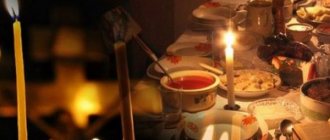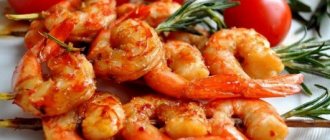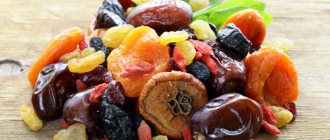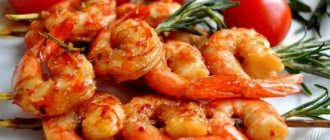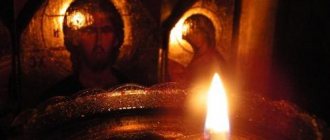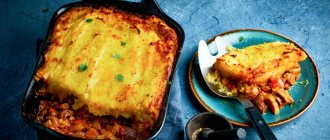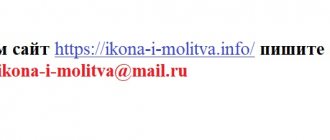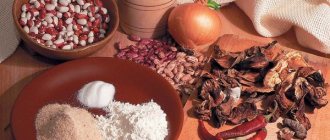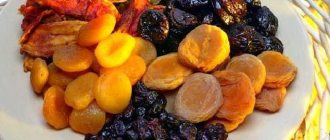If someone you know is fasting, it is always noticeable: the person chooses from the Lenten menu in the dining room, refuses to treat himself to a birthday cake, and talks about how he prepares Lenten dishes at home. All this means to adhere to fasting - or is its meaning something else?
Fasting is a timeless practice. The prophet Moses and King David fasted, Christ and the apostles fasted, and today we also fast.
Fasting is much more than just abstaining from food. When we talk about Orthodox fasting, we mean both physical and spiritual fasting. According to the words of St. Basil the Great (IV century):
“There is physical fasting, and there is mental fasting. In bodily fasting, the body fasts from food and drink; With spiritual fasting, the soul abstains from evil thoughts, deeds and words. A true faster abstains from anger, rage, malice and revenge. A true faster abstains from idle talk, foul language, idle talk, slander, condemnation, flattery, lies and all slander. In a word, a true faster is one who shuns all evil.”
And thanks to fasting, we can realize our dependence on God. If we always eat and drink enough , we can easily become overconfident in our own abilities, gaining a false sense of self-sufficiency. This is the function of hunger and fatigue. They make us “poor in spirit”, make us feel defenseless and trust God.
In the modern world, where there is so much food, smells and temptations that are difficult to resist, it is especially useful to adhere to a certain dietary regime. In fact, people are always trying to find their own diet and are addicted to various kinds of diets. At work I get asked about this all the time: “Rita, I need a clear plan: when, what and how much to eat.”
We need ritual. We crave order and direction. What dieters find intuitively is often already prescribed by the ancient Orthodox church calendar.
Who should not fast during Lent?
There are no prohibitions on fasting in the church. There are general rules according to which it is recommended to limit yourself in food and they apply to all strong, strong and healthy people.
There are 4 posts a year. During the Nativity Fast, everyone who is fasting can eat fish and seafood; during the Assumption Fast, they can eat fish on holidays, except Wednesday and Friday.
Even during Lent - the strictest and longest - you can eat fish on Annunciation and Palm Sunday. These rules apply to everyone who does not have health limitations.
Breaking the fast is possible for children, pregnant women, military personnel, travelers and those who suffer from serious illnesses or engage in heavy physical work. Nursing mothers should not fast either, as their milk may disappear.
In some cases, it is worth consulting with a priest whether you can make food restrictions or not. Weak and elderly people should not fast.
The main goal of fasting is to tame the animal nature and passions in the body. Therefore, special abstinence is required during fasting. Even if a person paints icons, he needs to fast for some time. Only in this case will he be able to be imbued with a spiritual image and paint the icon the way it should be so that it turns out to be soulful.
Fasting is also done to cleanse the body and get rid of excess weight, and you should not think that the priests are against the fact that fasting is used as a diet. After all, it has been proven that poor nutrition and abuse of heavy and high-calorie foods can provoke many different diseases, which are expressed in irritability, scandalousness, which in no way encourages spiritual reflection.
Therefore, those who suffer from excess vitality are required to fast. But this does not apply to weak people suffering from numerous diseases of the body or pregnant women.
How fasting affects the body
I am not a supporter of diets, and certainly one cannot call Orthodox fasting a diet (even its nutritional component) - they have different goals. But as a nutritionist, I was interested to see how fasting works from a biochemical point of view. After all, during fasting we not only refuse certain foods, but also try to eat less in general.
Fasting consists not only of eating rarely, but of eating little; and not in eating once, but in not eating much. The fasting person who waits for a certain hour, and at the hour of the meal indulges in insatiable eating with both body and mind, is unreasonable.
Venerable Seraphim of Sarov
How does fasting affect the body? First of all, we need to understand one fundamental thing about our body. Glucose is the fuel that gives us the strength to move, the main source of energy for the brain. Glucose comes from the food we eat. The body breaks down foods, and thanks to this, glucose becomes available to cells. In other words, our body needs glucose to survive.
When the body is left without food for some time, it has to use accumulated reserves to provide the brain and the whole body with glucose . Our body has three main energy stores.
- Glycogen: Stored carbohydrates are stored in the liver and some muscle groups.
- Fat: fatty deposits.
- Amino acids: building blocks of muscle tissue.
First, the body uses accumulated glucose reserves. When they are depleted, it switches to fat reserves and processes fat into an energy source - glucose. Cyclic fasting puts our body into a fat-burning state without compromising muscle tissue.
Are you fasting? Prove it to me with your deeds. What business do you say? If you see a beggar, give alms; if you see an enemy, make peace; if you see your friend happy, don’t be jealous; if you see a beautiful woman, pass by.
Let not only the lips fast, but also sight, and hearing, and legs, and hands, and all the members of our body. Let your eyes fast, learning not to be drawn to handsome faces and not to gaze at the beauty of others. Don't you eat meat? Do not taste immodesty with your eyes.
Let your hearing also fast; and the fast of hearing is not to accept slander and slander. Let the tongue also fast from foul language and swearing. What good is it when we abstain from birds and fish, but bite and devour our brothers?
Saint John Chrysostom
Advertising
For what diseases should laymen not fast?
Monks observe strict fasting for life and do not eat meat at all. Priests do not recommend breaking the fast without a good reason.
However, there are diseases and conditions in which it is not recommended to violate the diet prescribed by the doctor and refuse meat dishes during fasting.
It is impossible to accurately name the spectrum of such diseases. Even with infectious inflammatory diseases and complicated colds, you can break your fast.
But there are illnesses during which you can break your fast. These include:
- any forms of oncology;
- for gastritis and inflammatory diseases of the intestines and stomach;
- during pregnancy;
- during lactation;
- for women's diseases and operations accompanied by large blood losses;
- for anemia, injuries and blood loss;
- if hypertension worsens;
- diabetes mellitus is present;
- with anorexia;
- liver diseases;
- after serious illnesses;
- for tuberculosis;
- AIDS;
- pneumonia;
- severe colds and bronchitis, flu, especially in children, weakened or elderly people;
- for any metabolic disorders.
In such cases, the disease is assessed as fasting and abstinence, so people in such conditions should under no circumstances break their diet or evade the recommendations of specialists.
How to fast?
In addition to abstaining from consuming animal products (to the extent possible), we must try to give up what harms our soul: idle time, anger, slander, lies.
You can simply immerse yourself in silence in nature or at home in reading the Gospel, help your neighbors with everyday matters, spend time with your family, especially those who need us.
Post for military personnel
It is not recommended for military personnel to fully observe the fast. Especially for those who fight in hot spots and are forced to remain without food for a long time.
In other cases, retired military personnel and those who fulfill their civic duty outside of combat should not limit their fasting too much. Especially if a person feels excess energy and behaves aggressively.
Travelers should not fast, especially if they are forced to go without food for a long time. For example, researchers, hydrologists and those who are forced to go without food for a long time and who simply need high-calorie nutrition.
How to atone for your guilt
It is important to remember that violating prohibitions is not a death sentence. A sinner can always repent of his actions, and the Lord will forgive him, for he is a lover of humanity and accepts his creations as they are.
The reason for violating church prohibitions is not particularly important, so it is necessary to try to atone for guilt in any case. It is worth sincerely repenting and confessing, telling the whole story as truthfully as possible. There is no need to hide the truth and look for excuses.
When offering repentance to God, one should read the troparia that are read before the service during the days of Great Lent.
The main thing is to sincerely admit your guilt, without justifying sinful acts with temptations, illnesses and other life circumstances. And even if the fast was broken, it is very important to return to the righteous path and not indulge in fornication. You should always continue to adhere to church canons, to the best of your strength, health and capabilities.
When offering repentance to God, one should read the troparia that are read before the service during the days of Great Lent.
What and to whom are concessions allowed during Lent?
Relaxations in fasting may be for teenagers and those who work with increased stress. Sometimes fasting is allowed to be weakened by those who have experienced severe grief or suffer from mental illness, especially those associated with anorexia and loss of appetite.
If such a person faints, then he needs to regain his strength. Such physically weakened people are allowed not only to eat fish, milk and seafood during fasting, but even meat.
In some cases, monastery governors force weakened monks to eat meat and dairy products. This therapy is also useful for those who are too proud of their righteousness and overdo it in their faith.
The experience of a person fasting for the first time
Like all neophytes, twenty-five years ago I rushed into this unfamiliar activity with zeal, but without knowledge.
Within a few days it became clear that I had practically nothing to eat - forbidden things were hidden everywhere. I had no external guidance and comprehended everything with my unprepared and weak mind. The revelation was that you can’t have everything dairy. I never ate dairy, but I relied on it as a method of exhausting the flesh. Hopes were not justified. It was possible to have vegetables, but fresh vegetables were expensive in February, and there were few of them in those years. There were potatoes and sauerkraut left. I love both with vegetable oil. It turned out that vegetable oil is not allowed during fasting. Then I considered this obvious hypocrisy and still think so. As always, at the right time, I came across a study of the medieval life of European monasteries, from which I learned that it was because of fasting that the brethren learned to eat snails, frogs and other cuttlefish. Shrimp, lobsters and lobsters also turned out to be lean; this diversified the choice, but only made the process more expensive. Fortunately, I really love seaweed - my repertoire immediately doubled.
Is it possible to fast for a child?
Children under 7 years old should not fast, as the growing body constantly requires vitamins and proteins.
However, if a child is healthy or overweight, he needs to fast like adults.
However, relaxations of fasting are allowed for some time; it is better to consult a priest about this.
What to cook during fasting
Enough moralizing, let's get down to practice. So, we do not pretend to be monks, but strive to ensure that food does not go beyond the modest limits of food and maintenance of strength. If health allows, of course. The main thing is not to constantly think about how not to eat something forbidden. You don’t need to think about this - think about your soul, that’s what fasting is for.
Food during fasting should be simple and uncomplicated. This does not mean that you should necessarily eat sparingly and tastelessly, but you shouldn’t “eat cabbage from a barrel directly with your hands” either. The less food occupies your thoughts, the better.
What do we have in stock? Cereals, root vegetables, berries, fruits, mushrooms, seaweed, flour, all kinds of pickles, honey and jam. Not so little if handled skillfully. In my practice, vegetable oil is lean, you just don’t have to be overzealous.
There is a large assortment of lean products - root vegetables, berries, fruits, mushrooms, seaweed, pickles, honey and jam
About fish
Yes, an important point. In Russian cuisine, fish has always been lean, with the exception of days of strict fasting, and there are few of them. I. Shmelev, an impeccable storyteller, writes in his “Summer of the Lord”: “Fish shops opened on Saturday of the first week of Lent.” So, if you don’t plan to be holier than the Pope, don’t deny yourself fish. I myself don’t cook bishop’s fish soup during Lent and I don’t eat stellate sturgeon with horseradish, but I don’t consider all kinds of herring sprat and simple canned food to be shameful, not to mention sushi and smelt, the most monastic food.
In Russian cuisine, fish has always been lean, with the exception of days of strict fasting.
About porridges
I myself don’t particularly like porridge, for example, but for several months I fed it to my older sister in the mornings and learned to cook it quite decently. There are many recipes for unsweetened porridges among fraternal peoples - Moldavian mamalyga, Georgian gomi, Armenian wheat porridges - all this can be mastered for variety. Accompanying porridge with gravies and sauces gives excellent results. For example, the same crumbly buckwheat is transformed into a wonderful dish if you make a simple flour sauce from onions and pickled cucumbers, or from onions and mushrooms - fresh, dried or salted, or stewed carrots. Millet and pearl barley can be varied with fruits and dried fruits.
Millet and pearl barley can be varied with fruits and dried fruits
About soups
Soups are especially appropriate during Lent; they create volume. Many recipes for cabbage soup and borscht do not require meat at all, without losing anything in taste. Sauerkraut cabbage soup with dry mushrooms is a classic and not just iconic, but also one of the most delicious dishes of Russian cuisine. Peas, beans and lentils cook well, all sorts of spicy dressings, fresh herbs and croutons allow you to decorate them, besides, legumes are a good source of protein. They easily create delicious combinations with the mentioned borscht soup - the same cabbage with red beans or borscht with white beans go together wonderfully.
Sauerkraut cabbage soup with dry mushrooms is a classic and one of the most delicious dishes of Russian cuisine.
About vegetables
Vegetables can be easily combined into all sorts of stews - stews, stews, eintopfs, chanakhi, but without meat. It's all very simple to prepare. Wash, peel and coarsely chop all sorts of root vegetables - potatoes, carrots, onions, turnips, celery, kohlrabi, the thickest parts of cabbage. Place on a baking sheet in one layer and bake for 20-25 minutes in an oven preheated to 200C. Place in a thick-walled pan or pot, pour in a glass of water or tomato juice, add salt, spices and dry herbs, close tightly and simmer for 10-15 minutes. For variety, you can add all sorts of frozen vegetables - peas, green beans, okra, etc., or the same plain beans from a can.
Vegetables can be easily combined into a variety of stews
Of course, fresh eggplants, zucchini and sweet peppers work well in this composition, but this significantly increases the cost of the dish and introduces an element of debauchery. I abstain. But I strongly approve of champignons and oyster mushrooms (until recently they cost a hundred rubles a kilo).
Buckwheat with champignons
About rice
It is clear that rice provides a vast field of various combinations in the Asian spirit. Cook any fluffy rice according to the instructions on the package, let it stand under the lid (if not a hinged one), transfer it to a baking sheet, crush it with a fork or your hands as soon as it cools down a little, dry it for half an hour and put it in a container in the refrigerator. (This is an important point, otherwise you will end up with a mess). The next day, this rice can be fried with any toppings. The easiest thing is to quickly fry a bag of frozen vegetable mixes (Mexican, Hawaiian, there are plenty of them now) in a large frying pan, stir in the rice and heat through together. Garlic, ginger, sauces, spices, oils will create a rich spectrum of tastes and aromas. Fresh mushrooms and eggplants, peas and corn from a jar are like family here. It is clear that expensive manjtoux, young flat beans and small asparagus will decorate the dish unusually, but remember about debauchery. We won't allow it!
Rice provides a vast field of various combinations in the Asian spirit
About noodles and other pasta
The same trick can be done with different Asian noodles - rice, bean, egg, wheat and buckwheat. Noodles are a great substitute for rice; there are dozens of available combinations (in fact, there are thousands of them, but don’t bother).
Pasta can always feed a person without causing boredom or disgust. Yes, most pasta sauces contain cheese, eggs, cream or meat, but not all. Take at least one of the pillars - alla pomodoro, with tomato sauce. It is, of course, difficult to do without olive oil completely, but there is no such need. And a variety of pestos - mixtures of chopped herbs with butter and nuts - can be made without cheese. Instead of the glamorous Italian pesto from green basil, you can make a democratic Provençal parsley pistou. I cook homemade tomato sauce from an ordinary can of tomatoes in its own juice with various additives - onions, celery, olives, smoked paprika. With this sauce you can eat anything without thinking, and that’s what we need.
Pasta can always feed a person without causing boredom or disgust
About desserts
It would seem that sweets should be excluded altogether during Lent, but this is again a cost of the zeal of converts. We always ate honey during fasting, we didn’t use refined sugar, because animal casein was used for purification, but there was lean sugar, I found it, so soft, not crystalline. You can even now buy muscovado for a lot of money for greater piety, but how much piety is there in observing formalities? Wouldn't it be better to buy cheap sand and distribute the difference of three hundred rubles on the porch? Lent is just the time for this.
The problem of sweets is perfectly solved with all sorts of berry jelly. In the markets you can buy frozen berries at bargain prices; any starch is quite affordable. Wonderful jelly is made from a mixture of berries - strawberries, cherries, black currants or raspberries. Pour cold water over the berries in a ratio of 1:3, bring to a boil, add sugar to taste. In a cup, carefully dilute the starch with cold water - I put a heaped tablespoon for every half liter of liquid - you need the same amount of cold water as starch, and pour in a stream while stirring into the jelly. Let it boil again and turn it off. If the jelly is for children, whip the vegetable cream and decorate. However, adults will also eat this for a sweet soul.
It’s good to serve berry jelly for sweets during Lent.
I cannot and do not want to recommend all sorts of substitutes and dupes. This is all sorts of “soy meat”, margarine spreads, “phytomayonnaise”, etc. There is no need to deceive anyone, neither yourself nor people. There is no sin in weakness, it is a sin not to recognize weakness or indulge it. It’s better to eat a sandwich with sausage, if that’s the case, than to fuss, “and your Father, who sees in secret, will reward you openly.”
I repeat, there is no need to create or intentionally get into situations where you have to break prohibitions, but being insulted is better than offending, and even becoming proud.
